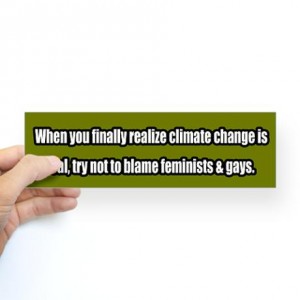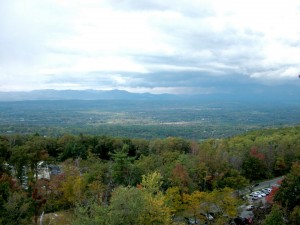
This year marks the 25th anniversary of the Environmental Grantmakers Association. Their annual fall retreat took place Sunday, September 30th-Wednesday, October 3rd at the Mohonk Mountain House in New Paltz, New York. The retreat was filled with the most welcoming group of people, stellar views, thought provoking talks, and endless inspiration.

The philanthropic community is filled with well-meaning individuals who want to make a difference in the world. But as William Cronin poignantly reminded the EGA community in Monday’s keynote, the Dawes Act (responsible for Native American Tribes losing 90 million acres of land) was created by a well meaning group of white men, at Mohonk, who wanted to make the Native Americans responsive to their land as farmers.

The Act, as well meaning as it may have been, destroyed tribal communities. As a newcomer in philanthropy, Cronin’s statement was a welcomed reminder and caution to the impact a funder can have and the need to ensure each voice has a seat at the table.
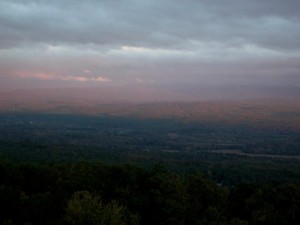
In addition to having all voices at the table, we have to be cognizant that campaign wins do not generally occur over night. If a win does not occur within the first year, the philanthropic community should work with the groups to help build a network or plan that will help it achieve the sought after success.
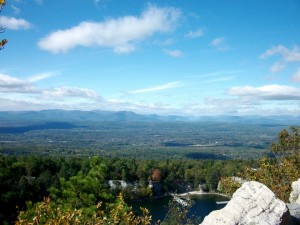
In a plenary talk given Tuesday morning, with Kumi Naidoo and Van Jones, Jones addressed that exact point of view. He used the Civil Rights movement and the efforts of Martin Luther King, Jr. to explain the importance of looking beyond failed deliverables. After MLK’s participation in the bus boycotts, it took years before the Civil Rights Act was finally passed. If you were a funder, after year after year of not delivering the success of the Civil Rights Act, would you have continued to fund the work. Some groups might not have.
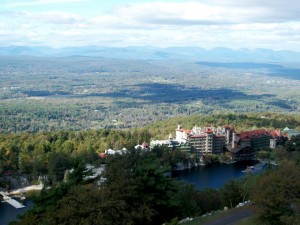
As Van Jones thoughtfully pointed out, “when there is a quality of leadership, there should be a quality of commitment.” We must remember this as we work with new and old grantees on the systemic and transformational change we seek to achieve.
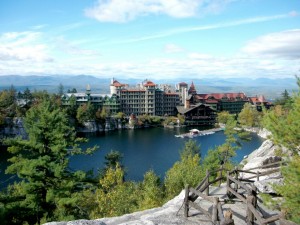
We also cannot observe the landscape at the 30k foot level and expect to achieve real systemic, transformational change, if we start from a defeatist point of view. How can you expect to really make a difference?
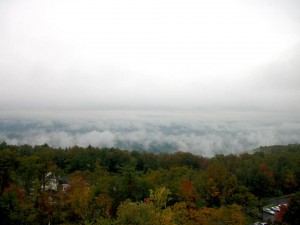
In the short amount of time I have spent within the environmental and philanthropic community, it seems to me, that the environmental community is almost too nice, which negatively influences how they are perceived by legislators and agency personnel. Just because our “friend” is in office, does not mean we should be afraid to make the large asks or hold them accountable for their actions. It gets us no where, beyond the community not being taken as seriously. This is not like having a friend in office, it is like having a child and there needs to be consequences. We cannot expect to make the real transformational changes necessary in the community if we shy away from the hard asks.
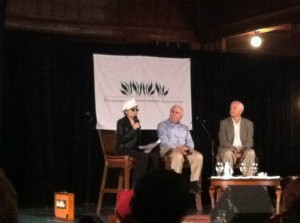
Environmentalism is commonsense. It should be a bipartisan issue and should be engaging a diverse group of individuals from various backgrounds.
On the third night of the retreat, Yoko Ono and Dr. Anthony Infraffea, moderated by David Fenton, spoke about fracking and the work of Artists Against Fracking.
When asked how to reach broader audiences with something as complicated as fracking, Yoko responded, without hesitation, “Truth is simple. We are the ones complicating it.”
http://towncreekfdn.org//www.youtube.com/watch?v=Wg2gAbb0NuE
After such a great conversation with Yoko Ono, we were joined by Natalie Merchant (also involved with Artists Against Fracking). EGA was shown a sneak peak of the documentary ‘Dear Governor Cuomo, New Yorkers Against Fracking in One Voice’ (featured above), followed by a moving performance by Natalie Merchant and her band.
When I thought such an amazing night could not get any better, I was witness to a legit hoedown of EGA members and Natalie Merchant herself. What a great way to celebrate, not only the great work of the environmental philanthropic community, but also EGA’s 25th anniversary!
And then Wednesday morning happened…
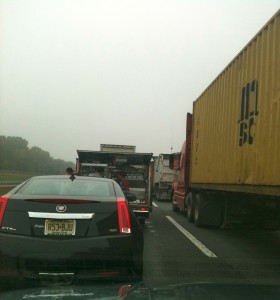
After such an amazing trip I sadly left the picturesque landscape surrounding Mohonk and attempted to head back to the good ole eastern shore of Maryland on Wednesday morning. Apparently, someone upstairs did not agree with this decision, as 10 minutes before reaching exit 7a on the New Jersey Turnpike traffic came to an absolute stop. This LOVELY food truck thought they would make the situation even better, by opening up and selling food, thus preventing cars from moving the little that they could. What was suppose to be a 5 hour trip, turned into a 10 hour drive. THANK GOODNESS for the companionship of my trusty iPod, a good cup of coffee, and the fabulous memories of my first EGA retreat.
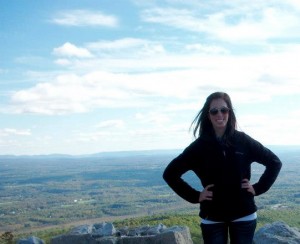
THE END.
